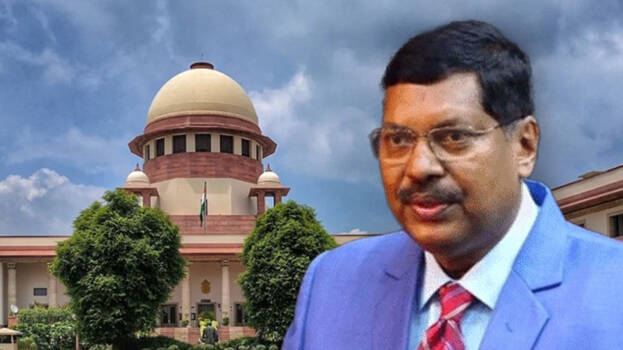

The interventions made by the Supreme Court to protect the rights of citizens have become a protection of democracy itself. Although the Parliament has passed clear laws for each sector, they can be overturned when implemented by the executive. The Supreme Court is the last resort that a citizen can approach to question this. Humans and man-made institutions can make mistakes. Similarly, the Supreme Court has made mistakes in some important judgments. They have been corrected later. There was also a case where a son took a stand against his father's judgment when he became the Chief Justice.
As time changes, it is essential that there are changes in the views and decisions of the ones in power, courts, and officials that are in line with the concept of justice of the time. Our Constitution, which envisages equal treatment for all citizens, also guarantees reservations to bring some sections of society, who have been neglected for centuries, to the mainstream. Members of general categories, who were opposed to reservation for many years, have also changed their stance and have now become the beneficiaries of reservation. The central government implemented ten percent reservation for the economically backward people of the upper caste groups. The economically very advanced backward classes do not get the benefit of reservation at present.
Different sections of the population should get equal security apart from equal consideration. For this, reservation is essential in today's India, where sections of the population are divided into different categories on the basis of caste and religion. However, even this reservation, which is ensured by law, is often violated in many areas when it is implemented. A question that remained unanswered for 75 years was whether the Supreme Court has the moral authority to order reservations in other places if the Supreme Court itself does not follow the principles of reservation in its appointments. This question has been answered by the Chief Justice of the Supreme Court from the Dalit community. This is through the decision to provide reservations for SC-ST categories in non-judicial appointments and promotions in the Supreme Court.
The SC category will now get 15 percent quota and the ST category 7.5 percent in appointments and promotions. Reservation will be applicable to posts ranging from the highest rank of Registrar to the lowest level of Chamber Attendant. Henceforth, there will be three categories of employees in the Supreme Court: SC, ST and General. The Chief Justice has sent an internal circular through an e-mail stating that the reservation policy will come into effect from June 23.
Chief Justice B.R. Gavai had recently asked in an interview to a media outlet; why the Supreme Court should be left out when there is reservation for SC and ST categories in government institutions and high courts. The Chief Justice has taken a very bold step. This should be followed by a move to provide adequate reservations for the backwards minority groups. There has been a long-standing demand for reservations in the appointment of judges in the Supreme Court. In the 75-year history of the Supreme Court, not a single member from the Ezhava community has been able to become a judge in the higher court. It is not a lack of talent; it is a problem of criteria. Such injustices should also be resolved over time. In any case, the present move can be considered an example of the Supreme Court also accepting the changes needed with time.